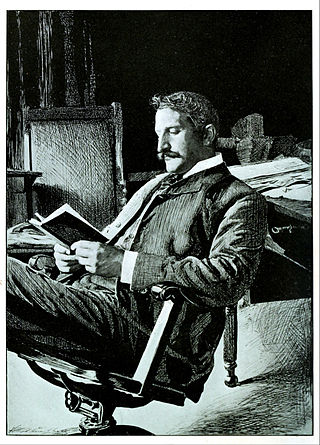
Abner Doubleday was a career United States Army officer and Union major general in the American Civil War. He fired the first shot in defense of Fort Sumter, the opening battle of the war, and had a pivotal role in the early fighting at the Battle of Gettysburg. Gettysburg was his finest hour, but his relief by Maj. Gen. George G. Meade caused lasting enmity between the two men. In San Francisco, after the war, he obtained a patent on the cable car railway that still runs there. In his final years in New Jersey, he was a prominent member and later president of the Theosophical Society.
July 25 is the 206th day of the year in the Gregorian calendar; 159 days remain until the end of the year.
1862 (MDCCCLXII) was a common year starting on Wednesday of the Gregorian calendar and a common year starting on Monday of the Julian calendar, the 1862nd year of the Common Era (CE) and Anno Domini (AD) designations, the 862nd year of the 2nd millennium, the 62nd year of the 19th century, and the 3rd year of the 1860s decade. As of the start of 1862, the Gregorian calendar was 12 days ahead of the Julian calendar, which remained in localized use until 1923.

The Dean Cemetery is a historically important Victorian cemetery north of the Dean Village, west of Edinburgh city centre, in Scotland. It lies between Queensferry Road and the Water of Leith, bounded on its east side by Dean Path and on its west by the Dean Gallery. A 20th-century extension lies detached from the main cemetery to the north of Ravelston Terrace. The main cemetery is accessible through the main gate on its east side, through a "grace and favour" access door from the grounds of Dean Gallery and from Ravelston Terrace. The modern extension is only accessible at the junction of Dean Path and Queensferry Road.
John or Johnny Morris may refer to:

Frank Nelson Doubleday, known to friends and family as "Effendi", founded the Doubleday & McClure Company in 1897, which later operated under other names. Starting work at the age of 14 after his father's business failed, Doubleday began with Charles Scribner's Sons in New York.

Nelson Doubleday was a U.S. book publisher and president of Doubleday Company from 1922–1946. His father Frank Nelson Doubleday had founded the business. His son Nelson Doubleday Jr. followed him into it, taking part in expansion and serving as president from 1978–1986.

Franklin Bachelder Simmons was a prominent American sculptor of the nineteenth century. Three of his statues are in the National Statuary Hall Collection, three of his busts are in the United States Senate Vice Presidential Bust Collection, and his statue of Ulysses S. Grant is in the United States Capitol Rotunda.
Ulysses Freeman Doubleday was an American politician who served two terms as a U.S. Representative from New York from 1831 to 1833, and from 1835 to 1837.

Thomas Donnelly Doubleday was an American bookstore owner and a Union Army officer in the American Civil War.
Potter is an English surname that originally referred to someone who made pottery. It is occasionally used as a given name. People with the name include:

The Entomological Magazine was a publication devoted to entomology.
Neltje, also known as Neltje Doubleday Kings, was an American artist, businesswoman and philanthropist. In 2005 Neltje received the Wyoming Governor's Art Award for her artwork; she was an abstract painter.
Ulysses Doubleday was a Union Army colonel during the American Civil War. In 1866 he was nominated and confirmed for appointment to the grade of brevet brigadier general of volunteers, to rank from March 13, 1865.
Thomas Donnelly (1764–1835) was Sergeant-at-Arms of the New York State Assembly from 1806 to 1813, and from 1814 to 1817.

Mary Stewart Doubleday Cutting (1851–1924) was an author of domestic realism novels and short stories.
This page is based on this
Wikipedia article Text is available under the
CC BY-SA 4.0 license; additional terms may apply.
Images, videos and audio are available under their respective licenses.







